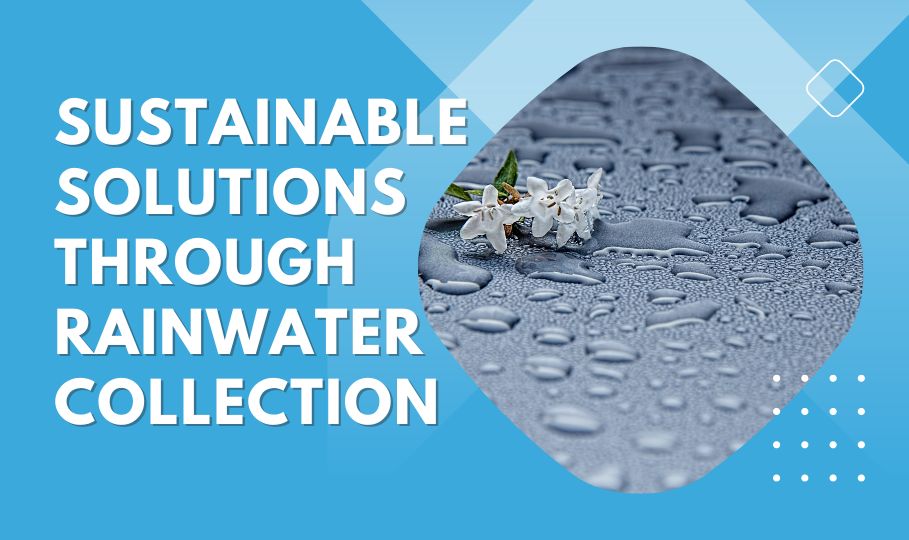Introduction
Dubai, known for its luxury and opulence, is also facing a critical issue – water scarcity. With the rapid population growth and urbanization, the demand for water has surged, leading to an urgent need for sustainable solutions. Rainwater collection has emerged as a promising strategy to address this challenge by harnessing one of nature’s most abundant resources. Let’s explore rainwater collection and its role in shaping the future of water in Dubai.
Benefits of Rainwater Collection
Environmental Benefits
- By collecting rainwater, we can significantly reduce the demand on traditional water sources, such as desalinated water.
- Rainwater collection also helps mitigate urban flooding by diverting excess water to storage tanks.
- Additionally, rainwater is naturally pure, and harvesting it preserves water quality by reducing the need for chemical treatment.
Economic Benefits
- Implementing rainwater collection systems can lead to substantial cost savings on water bills for both residential and commercial properties.
- Long-term sustainability is another key economic benefit, as rainwater is a free resource that can supplement water supply during dry spells.
- Moreover, government incentives are increasingly available to encourage the adoption of rainwater harvesting technologies.
Social Benefits
- Rainwater collection fosters community engagement by encouraging collective efforts to conserve water resources.
- It also serves as an educational tool to raise awareness about water conservation practices among residents.
- Furthermore, by improving water resilience, rainwater collection enhances the overall quality of life in Dubai.
Implementation of Rainwater Collection Systems
Types of Collection Systems
- Above-ground tanks are the most common and practical solution for residential properties.
- Underground cisterns offer a discreet option for storing rainwater without compromising aesthetics.
- Green roofs utilize vegetation to absorb and store rainwater, providing a dual benefit of insulation and water collection.
Design Considerations
- The choice of roof material and slope greatly impacts the efficiency of rainwater harvesting.
- Proper filtration and purification methods are essential to ensure the collected rainwater meets quality standards.
- Regular maintenance and monitoring of collection systems are crucial to maximize their effectiveness.
How Secure Track Transport LLC collects rainwater through tankers in Dubai.
Secure Track Transport LLC utilizes specially designed tankers equipped with advanced rainwater collection systems. These tankers are strategically deployed across Dubai to capture rainwater efficiently. When rain falls, the tankers are positioned to collect the runoff from rooftops, roads, and other surfaces. The collected rainwater is then filtered and stored safely in the tanker until it’s needed. This process ensures that rainwater, a precious resource, is harvested effectively and can be utilized for various purposes, contributing to water conservation efforts in Dubai.
Legal and Regulatory Aspects
- Obtaining permits and approvals from the authorities is necessary before installing a rainwater collection system.
- Compliance with building codes ensures the safety and structural integrity of the installation.
- Understanding water rights and usage restrictions helps navigate the regulatory landscape surrounding rainwater harvesting.
Case Studies of Successful Rainwater Collection Projects
- This pioneering eco-development features innovative rainwater collection systems integrated into its infrastructure.
- The adoption of rainwater harvesting has resulted in a significant reduction in water consumption within the community.
- Sustainable City Dubai also emphasizes community feedback and awareness to promote sustainable living practices.
Dubai Municipality Green Building Regulations
-
- The Dubai Municipality has implemented stringent requirements for rainwater collection in new construction projects.
- Enforcement and monitoring mechanisms ensure compliance with green building regulations and encourage sustainable practices.
- The long-term sustainability goals set by the municipality aim to make Dubai a leader in environmental conservation.
Conclusion
In conclusion, rainwater collection offers a multitude of benefits that can transform Dubai’s water landscape. From environmental conservation to economic savings and social empowerment, the impact of rainwater harvesting is undeniable. By embracing collaborative efforts and supporting sustainable initiatives, we can pave the way for a water-secure future in Dubai. If you are looking for reliable rainwater collection/removal services in Dubai Call us at +971 52 559 9726.
“Every drop of rainwater collected today is a step towards a more sustainable tomorrow.”
FAQs
Q1: How much rainwater can be collected in Dubai?
A: The average rainfall in Dubai is around 100mm per year, which can result in significant water savings through collection systems.
Q2: Are there any restrictions on using rainwater for domestic purposes in Dubai?
A: The Dubai Municipality has regulations in place to ensure the safety and quality of collected rainwater for various uses.
Q3: How can individuals contribute to sustainable water solutions in Dubai?
A: By installing rainwater collection systems, promoting water conservation practices, and supporting local initiatives, residents can play a crucial role in addressing water scarcity in Dubai.



